
Kiritimati: The Jewel of the Pacific
Kiritimati, also known as Christmas Island, is one of the hidden gems of the Pacific. Located in the Republic of Kiribati, this island is the largest atoll in the world, offering an untouched paradise for nature enthusiasts and adventure seekers alike. Its remote location has preserved its pristine beauty, making it a perfect destination for those looking to escape the hustle and bustle of modern life. The island is renowned for its stunning coral reefs and crystal-clear waters, making it a haven for divers and snorkelers. The underwater world around Kiritimati is teeming with vibrant marine life, including colorful fish, sea turtles, and even dolphins. Bird watchers will also find themselves in paradise, as the island is home to a variety of bird species, including the endangered Phoenix petrel and the white-throated storm-petrel. Kiritimati's history is as fascinating as its natural beauty. The island was discovered by Captain James Cook on Christmas Eve in 1777, hence its name. Visitors can explore remnants of World War II relics scattered across the island, offering a glimpse into its strategic importance during the war. The local culture is warm and welcoming, with traditional dances and songs that reflect the rich heritage of the Kiribati people. Despite its remote location, Kiritimati offers a range of accommodations, from basic lodges to more comfortable guesthouses. The island's small population ensures a peaceful and intimate experience, allowing you to truly connect with nature and the local community. Whether you're an avid fisherman, a history buff, or simply looking to relax on unspoiled beaches, Kiritimati provides a unique and unforgettable experience.
Local tips in Kiritimati
- Bring cash: ATMs are scarce, and credit cards are not widely accepted.
- Pack light: There's limited shopping, so bring essentials like sunscreen, insect repellent, and basic medical supplies.
- Respect local customs: Dress modestly and ask for permission before photographing locals.
- Plan ahead: Book accommodations and tours in advance, as options are limited.
- Stay hydrated: The climate is warm and humid, so drink plenty of water.
Kiritimati: The Jewel of the Pacific
Kiritimati, also known as Christmas Island, is one of the hidden gems of the Pacific. Located in the Republic of Kiribati, this island is the largest atoll in the world, offering an untouched paradise for nature enthusiasts and adventure seekers alike. Its remote location has preserved its pristine beauty, making it a perfect destination for those looking to escape the hustle and bustle of modern life. The island is renowned for its stunning coral reefs and crystal-clear waters, making it a haven for divers and snorkelers. The underwater world around Kiritimati is teeming with vibrant marine life, including colorful fish, sea turtles, and even dolphins. Bird watchers will also find themselves in paradise, as the island is home to a variety of bird species, including the endangered Phoenix petrel and the white-throated storm-petrel. Kiritimati's history is as fascinating as its natural beauty. The island was discovered by Captain James Cook on Christmas Eve in 1777, hence its name. Visitors can explore remnants of World War II relics scattered across the island, offering a glimpse into its strategic importance during the war. The local culture is warm and welcoming, with traditional dances and songs that reflect the rich heritage of the Kiribati people. Despite its remote location, Kiritimati offers a range of accommodations, from basic lodges to more comfortable guesthouses. The island's small population ensures a peaceful and intimate experience, allowing you to truly connect with nature and the local community. Whether you're an avid fisherman, a history buff, or simply looking to relax on unspoiled beaches, Kiritimati provides a unique and unforgettable experience.
When is the best time to go to Kiritimati?
Iconic landmarks you can’t miss
Aeon Field
Explore the captivating history and stunning landscapes of Aeon Field, a must-visit historical landmark in Kiribati that embodies the spirit of the region.
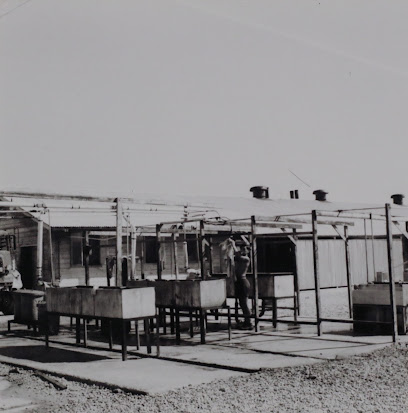
Lagoon View Resort
Discover the serene beauty of Lagoon View Resort in London, your perfect tropical escape with stunning views and luxurious amenities.

London Kiritimati Hospital
Discover Kiritimati Island's healthcare gem: London Kiritimati Hospital, where community wellness meets the beauty of the Pacific.
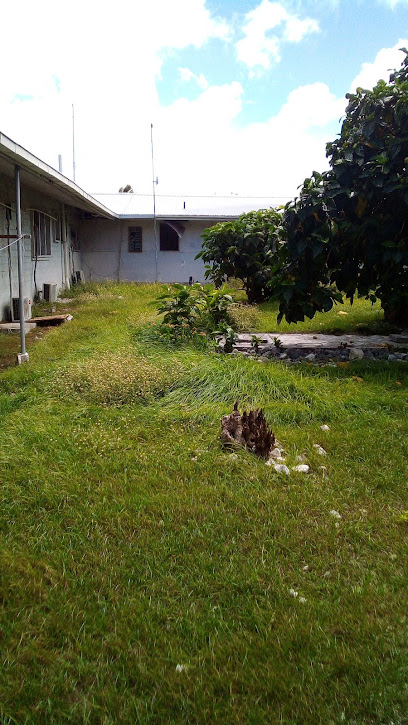
Kiritimati ben
Discover the flavors of Kiritimati Island at Kiritimati Ben, a bakery offering fresh, delicious pastries and breads in a welcoming atmosphere.
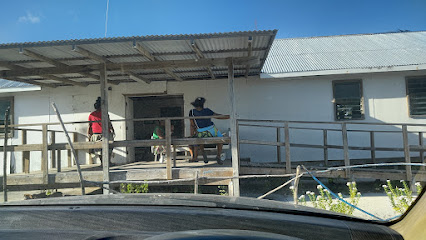
Unmissable attractions to see
Torben's Beach
Explore the serene beauty of Torben's Beach in Paris, where golden sands and crystal-clear waters await your visit.
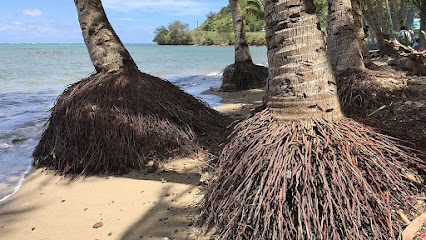
Paris Park
Discover the serene beauty of Paris Park, a lush green oasis perfect for relaxation, family outings, and enjoying nature's tranquility in the heart of Paris.
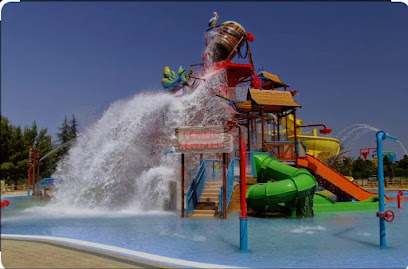
Rainbow Park
Explore the tranquil beauty of Rainbow Park in Tabwakea, Kiribati, where nature blooms and relaxation reigns.
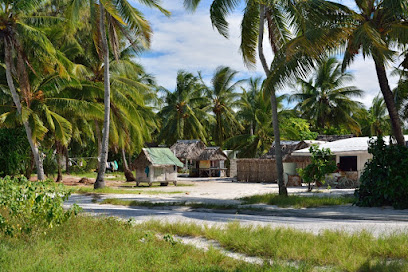
Tabonteke Beach Park
Experience the serene beauty of Tabonteke Beach Park in London, a tranquil escape with stunning beaches and lush greenery.
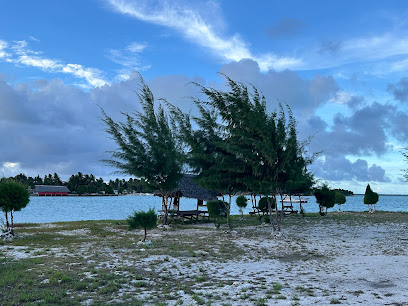
Kiribati tree
Explore the Kiribati Tree in Paris — A serene blend of nature and culture symbolizing the rich heritage of the Pacific Islands.

Link Services
Explore the serene beaches and vibrant marine life of Kiritimai Island, a tropical paradise in the Kiritimati atoll offering adventure and tranquility.

Kiritimati Park
Explore Kiritimati Park: A Serene Oasis in London Perfect for Nature Lovers and Outdoor Enthusiasts.

Essential places to dine
Bistro de Myrko
Discover the exquisite flavors at Bistro de Myrko – where local cuisine meets international flair in an inviting atmosphere.
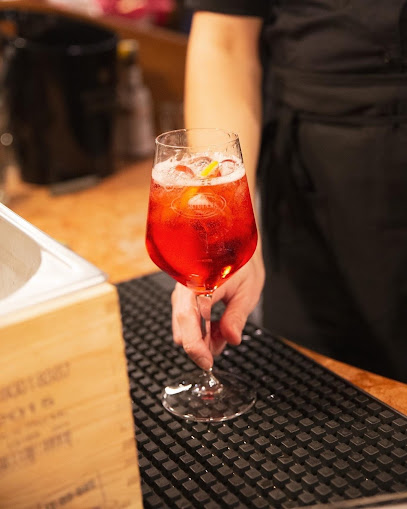
Sand Beach Restaurant
Experience fresh seafood and stunning ocean views at Sand Beach Restaurant in Banana - your gateway to tropical culinary delights.
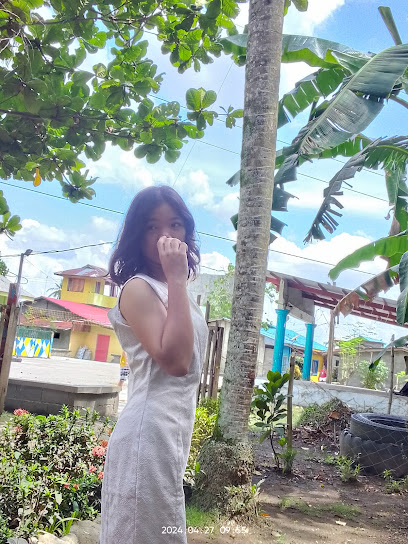
Kiritimati ben
Discover delightful baked goods at Kiritimati Ben while soaking in the stunning beauty of Christmas Island's tropical paradise.
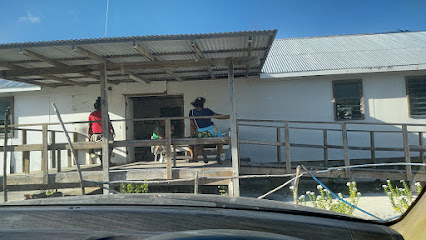
Mum's Kitchen
Experience the heartwarming flavors of home-cooked meals at Mum's Kitchen in London – where every dish tells a story.
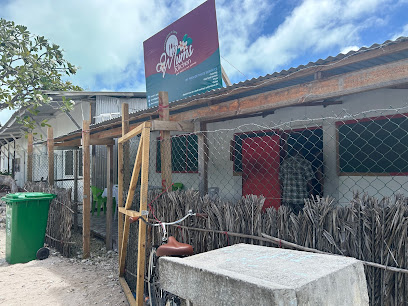
Polani Maeka Ngkare
Discover authentic Chinese flavors at Polani Maeka Ngkare - where every dish tells a story.

Monkey paradise
Experience delightful dining at Monkey Paradise in Banana, where local flavors meet vibrant atmosphere amidst tropical charm.

Markets, malls and hidden boutiques
Nina's Garment
Discover stylish dresses at Nina's Garment, a top fashion boutique in London, offering unique selections for every occasion.

Council Retail Shops
Experience the vibrant shopping scene at Council Retail Shops, a unique destination in London offering diverse stores and delightful dining options.

JMB Store
Explore Kiritimati's local flavors at JMB Store, where grocery shopping meets island charm and community spirit.

Set Vsat internet Shopping
Explore unique home goods at Set Vsat Internet Shopping in Tabwakea, a delightful destination for discovering local crafts and souvenirs.

Kiritimati ben
Discover Kiritimati Ben, a charming bakery offering irresistible baked treats that reflect the rich flavors of Kiritimati's culture and heritage.
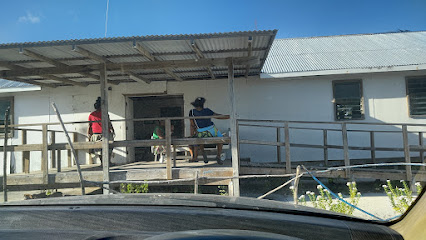
Rickronk Enterprises
Discover Kiritimati's vibrant shopping scene at Rickronk Enterprises, where electronics, fashion, and local culture come together.

Buokam Store
Explore Buokam Store in Ronton, Kiritimati for unique local goods and a glimpse into island culture.

Itin Auto Parts
Discover the ultimate auto parts store in London Kiritimati, ensuring your vehicle runs smoothly during your island adventure.

Big Ben’s Sausage
Discover the rich flavors of London at Big Ben’s Sausage, a premier butcher shop offering artisanal sausages crafted from the finest local ingredients.

Betty Trading
Discover unique local goods and travel essentials at Betty Trading, a charming general store in the heart of London.
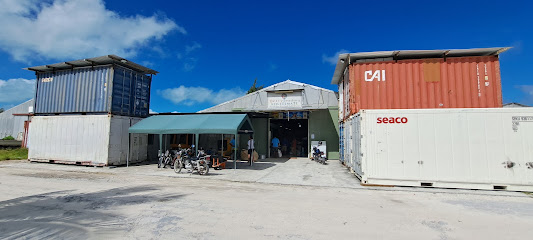
Onetwothreehours
Explore the artistry and history of textile production at Onetwothreehours, London’s premier textile mill showcasing craftsmanship and innovation.

Reef Colors Supplier
Discover the enchanting world of pond fish at Reef Colors Supplier, where vibrant colors and expert knowledge meet.
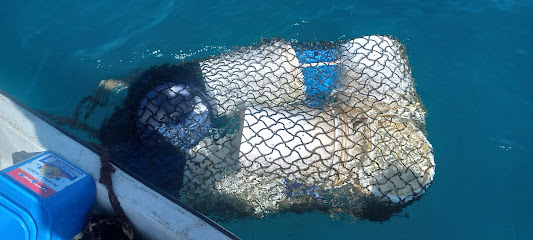
Map Trading
Uncover the world through maps at Map Trading in London, where history, culture, and geography come alive in a unique shopping experience.

VodaPhone
Stay connected seamlessly with VodaPhone in London, your essential stop for mobile devices, SIM cards, and expert assistance during your travels.

Wishing Star
Explore Wishing Star in Tabwakea for a delightful shopping experience with local flavors and unique souvenirs.

Essential bars & hidden hideouts
Kiritimati
Explore the pristine beauty of Kiritimati, the world's largest coral atoll, where adventure meets tranquility in the heart of the Pacific.
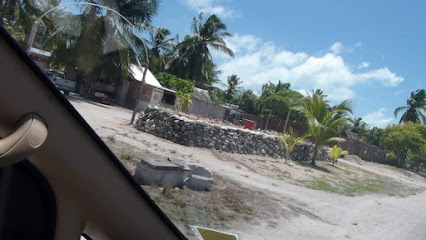
Captain Cook Hotel
Experience the perfect blend of comfort and adventure at Captain Cook Hotel in Banana, a serene escape in a tropical paradise.
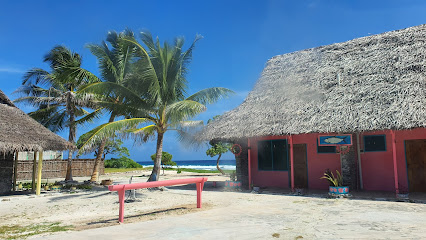
Sunset Horizon Fishing Lodge
Discover a tranquil escape at Sunset Horizon Fishing Lodge in London, where stunning sunsets and fishing adventures await.

Bistro de Myrko
Discover the vibrant flavors of Poland at Bistro de Myrko, where local ingredients meet innovative culinary artistry in a warm, inviting atmosphere.
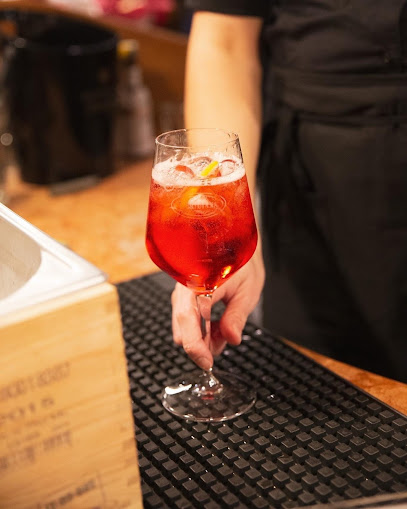
Lagoon View Resort
Discover the serene beauty of Lagoon View Resort, where luxury meets nature in an unforgettable island getaway.

Ikari House
Discover the comfort and charm of Ikari House, your perfect lodging choice in the heart of London, where relaxation meets city exploration.

Wishing Star
Discover the heart of local shopping at Wishing Star, a vibrant supermarket in London, offering fresh produce and unique local products.
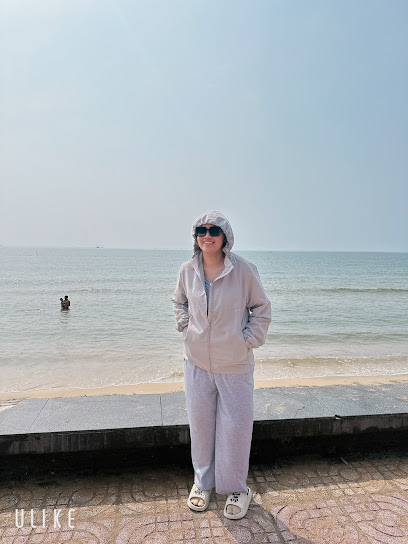
Kiritimati Yacht Klub
Discover the tranquil beauty of Kiritimati Yacht Klub, where adventure meets relaxation in a tropical paradise.
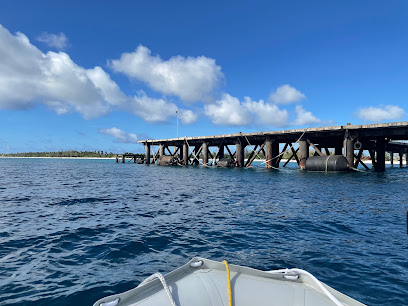
Local Phrases
-
- HelloKam na mauri
[kam na mauri] - GoodbyeTe mauri
[te mauri] - YesIo
[yo] - NoE aia
[ay aya] - Please/You're welcomeKam na mauri
[kam na mauri] - Thank youKam rabwa
[kam rabwa] - Excuse me/SorryKam na mauri
[kam na mauri] - How are you?Kam na mai?
[kam na mai] - Fine. And you?Maiorao. Iko?
[mai-or-ao. ee-ko] - Do you speak English?Te mai aomata?
[te mai ao-mata] - I don't understandKo au na riomu
[ko ow na ree-ow-mu]
- HelloKam na mauri
-
- I'd like to see the menu, pleaseKo ake aroa te menu, kam na mauri
[ko ake a-ro-a te menu, kam na mauri] - I don't eat meatKo au kaai te kawa
[ko ow ka-eye te ka-wa] - Cheers!Ko rabwa!
[ko rabwa] - I would like to pay, pleaseKo ake taa, kam na mauri
[ko ake ta-a, kam na mauri]
- I'd like to see the menu, pleaseKo ake aroa te menu, kam na mauri
-
- Help!Toka!
[to-ka] - Go away!Ko kai!
[ko kai] - Call the Police!Teka tei te Polis!
[te-ka tei te po-lis] - Call a doctor!Teka tei te dokita!
[te-ka tei te do-kee-ta] - I'm lostKo au ni mate
[ko ow nee ma-te] - I'm illKo au ni maraki
[ko ow nee ma-ra-kee]
- Help!Toka!
-
- I'd like to buy...Ko ake tai...
[ko ake tai...] - I'm just lookingKo au kaai te mata
[ko ow ka-eye te ma-ta] - How much is it?Ia teia e aei?
[ee-a te-ee-ya ay ay-ee] - That's too expensiveKa reke teia e aei
[ka ray-ke te-ee-ya ay ay-ee] - Can you lower the price?Ko baia te e aei?
[ko bay-a te-ee-ya]
- I'd like to buy...Ko ake tai...
-
- What time is it?Ko ia e te wa?
[ko ee-ya ay te wa] - It's one o'clockTe wa e te tetae
[te wa ay te te-ta-ay] - Half past (10)Te wa e te tae a te 10
[te wa ay te ta-ay a te 10] - MorningTe taeimano
[te ta-ay-ma-no] - AfternoonTe teinano
[te tay-na-no] - EveningTe po
[te po] - YesterdayEria
[ay-ree-a] - TodayEia
[ay-a] - TomorrowEtia
[ay-tee-a] - 1tetae
[te-ta-ay] - 2tekawake
[te-ka-wa-ke] - 3tewakoa
[te-wa-ko-a] - 4terimwi
[te-ree-mwee] - 5teuna
[te-oo-na] - 6teono
[te-ow-no] - 7teitasi
[te-ee-ta-see] - 8teiwalu
[te-ee-wa-loo] - 9teiwaqa
[te-ee-wa-ka] - 10teikawalu
[te-ee-ka-wa-loo]
- What time is it?Ko ia e te wa?
-
- Where's a/the...?Ko ia te...
[ko ee-ya te] - What's the address?Ko aia te tuunga?
[ko ay-a te too-oo-nga] - Can you show me (on the map)?Ko baia kainikai (I rota te mapa)?
[ko bay-a kai-nee-kai (ee row-ta te ma-pa)] - When's the next (bus)?Ko ia te bus ma te wa?
[ko ee-ya te bus ma te wa] - A ticket (to ....)Te tiki (ki ....)
[te tee-kee (kee)]
- Where's a/the...?Ko ia te...
History of Kiritimati
-
Kiritimati, also known as Christmas Island, was first recorded by European explorers in 1777 when Captain James Cook stumbled upon it during his third Pacific voyage. The island's name, 'Kiritimati,' is the local rendition of 'Christmas,' reflecting its discovery on Christmas Eve. Before European contact, it is believed that the island was uninhabited, although it may have been visited sporadically by Polynesian voyagers.
-
The British annexed Kiritimati in the late 19th century, integrating it into their colonial holdings in the Pacific. Kiritimati became part of the Gilbert and Ellice Islands Colony in 1919. During this period, coconut plantations were established, and the island's economy centered around copra production. The island remained relatively isolated, with minimal infrastructure development.
-
During World War II, Kiritimati played a strategic role in the Pacific theater. The United States used the island as a refueling and supply base, constructing an airstrip and other military facilities. This period marked a significant influx of foreign presence and infrastructure development, including improved roads and communication systems.
-
In the 1950s and 1960s, Kiritimati gained global attention as a site for nuclear testing. The British conducted several atmospheric nuclear tests, codenamed Operation Grapple, between 1957 and 1958. These tests were part of the UK's efforts to develop thermonuclear weapons. The legacy of these tests still influences the island, both environmentally and culturally.
-
Kiritimati became part of the independent nation of Kiribati in 1979. Since gaining independence, the island has focused on sustainable development and preserving its unique environment. Tourism has become increasingly important, with visitors drawn to its stunning natural beauty and rich history. The local culture is a blend of traditional Kiribati practices and the diverse influences from its historical encounters.
-
The culture of Kiritimati is deeply rooted in the traditions of the Kiribati people. Despite its colonial past and external influences, the island has preserved its unique language, dance, and communal lifestyle. Traditional ceremonies, such as the Maneaba (meeting house) gatherings, play a crucial role in maintaining social cohesion and cultural identity. The island also celebrates significant events like Independence Day with vibrant festivities.
Kiritimati Essentials
-
Kiritimati, also known as Christmas Island, is part of the Republic of Kiribati. The island is serviced by Cassidy International Airport (CXI). Flights to Kiritimati are limited; Fiji Airways operates weekly flights from Nadi, Fiji. Additionally, there are periodic flights from Honolulu, Hawaii. Be sure to check the flight schedules in advance as they can change frequently.
-
Transportation on Kiritimati is relatively limited. The island has a few taxis, and car rentals are available but can be expensive. Bicycles are a popular and eco-friendly way to get around the island. There are no public buses, so arranging transportation through your accommodation or local tour operators is advisable for exploring remote areas.
-
The official currency of Kiribati is the Australian Dollar (AUD). Credit cards are not widely accepted, so it is crucial to carry enough cash for your entire stay. There are limited banking facilities on the island, and ATMs are scarce, so it's advisable to withdraw sufficient cash before arriving.
-
Kiritimati is generally safe for tourists. However, standard travel precautions should be taken. Avoid walking alone at night, particularly in unfamiliar or isolated areas. Petty theft can occur, so keep an eye on your belongings. There are no specific high-crime areas targeting tourists, but it's always best to stay vigilant.
-
In case of an emergency, dial 999 for police, fire, or medical services. Cassidy International Airport has minimal medical facilities, so serious medical emergencies may require evacuation to a larger hospital in Fiji or Hawaii. It is highly recommended to have comprehensive travel insurance that covers medical evacuation.
-
Fashion: Do dress modestly, especially when visiting local villages. Avoid wearing revealing clothing. Religion: Do respect local customs and traditions. Public Transport: As there is no formal public transport, arrange travel ahead of time. Greetings: Do greet people with a smile and a nod. Handshakes are not common but can be used in formal settings. Eating & Drinking: Do try local seafood delicacies. Don't waste food, as resources can be scarce.
-
To experience Kiritimati like a local, visit the local markets and interact with the friendly islanders. Participate in traditional fishing activities and try your hand at bonefishing, a popular sport on the island. Attend local festivals and events to immerse yourself in the culture. Be sure to explore the abundant nature reserves and bird-watching spots for a truly unique experience.
Nearby Cities to Kiritimati
-
Things To Do in Maupiti
-
Things To Do in Bora Bora
-
Things To Do in Rangiroa
-
Things To Do in Raiatea
-
Things To Do in Huahine
-
Things To Do in Nuku Hiva
-
Things To Do in Tetiaroa
-
Things To Do in Aua
-
Things To Do in Moorea
-
Things To Do in Fagatogo
-
Things To Do in Pago Pago
-
Things To Do in Tafuna
-
Things To Do in Papeete
-
Things To Do in Leone
-
Things To Do in Tahiti





